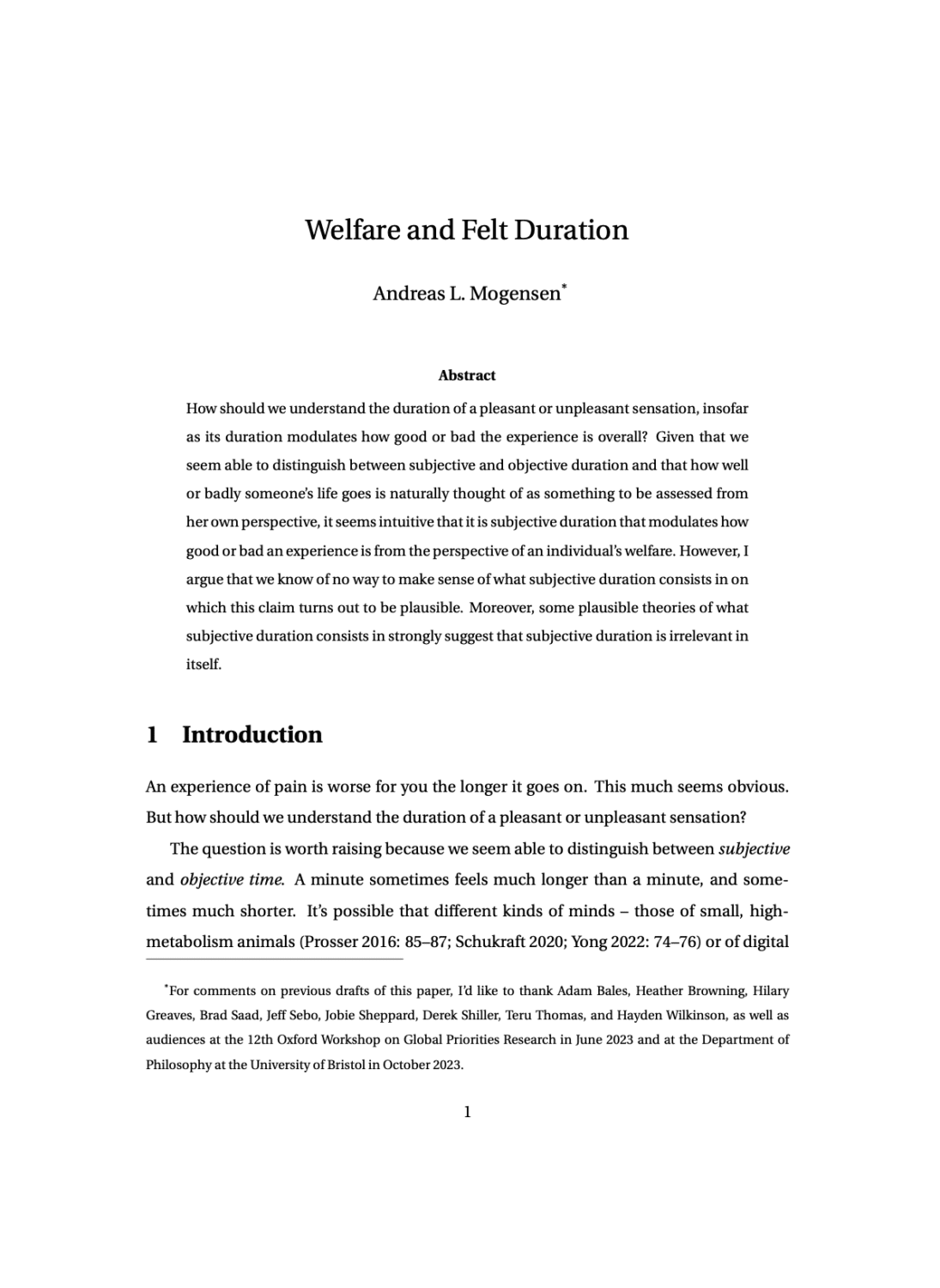Welfare and felt duration
Andreas Mogensen (Global Priorities Institute, University of Oxford)
GPI Working Paper No. 14-2023
How should we understand the duration of a pleasant or unpleasant sensation, insofar as its duration modulates how good or bad the experience is overall? Given that we seem able to distinguish between subjective and objective duration and that how well or badly someone’s life goes is naturally thought of as something to be assessed from her own perspective, it seems intuitive that it is subjective duration that modulates how good or bad an experience is from the perspective of an individual’s welfare. However, I argue that we know of no way to make sense of what subjective duration consists in on which this claim turns out to be plausible. Moreover, some plausible theories of what subjective duration consists in strongly suggest that subjective duration is irrelevant in itself.
Other working papers
Estimating long-term treatment effects without long-term outcome data – David Rhys Bernard (Rethink Priorities), Jojo Lee and Victor Yaneng Wang (Global Priorities Institute, University of Oxford)
The surrogate index method allows policymakers to estimate long-run treatment effects before long-run outcomes are observable. We meta-analyse this approach over nine long-run RCTs in development economics, comparing surrogate estimates to estimates from actual long-run RCT outcomes. We introduce the M-lasso algorithm for constructing the surrogate approach’s first-stage predictive model and compare its performance with other surrogate estimation methods. …
The Conservation Multiplier – Bård Harstad (University of Oslo)
Every government that controls an exhaustible resource must decide whether to exploit it or to conserve and thereby let the subsequent government decide whether to exploit or conserve. This paper develops a positive theory of this situation and shows when a small change in parameter values has a multiplier effect on exploitation. The multiplier strengthens the influence of a lobby paying for exploitation, and of a donor compensating for conservation. …
In defence of fanaticism – Hayden Wilkinson (Australian National University)
Consider a decision between: 1) a certainty of a moderately good outcome, such as one additional life saved; 2) a lottery which probably gives a worse outcome, but has a tiny probability of a far better outcome (perhaps trillions of blissful lives created). Which is morally better? Expected value theory (with a plausible axiology) judges (2) as better, no matter how tiny its probability of success. But this seems fanatical. So we may be tempted to abandon expected value theory…

